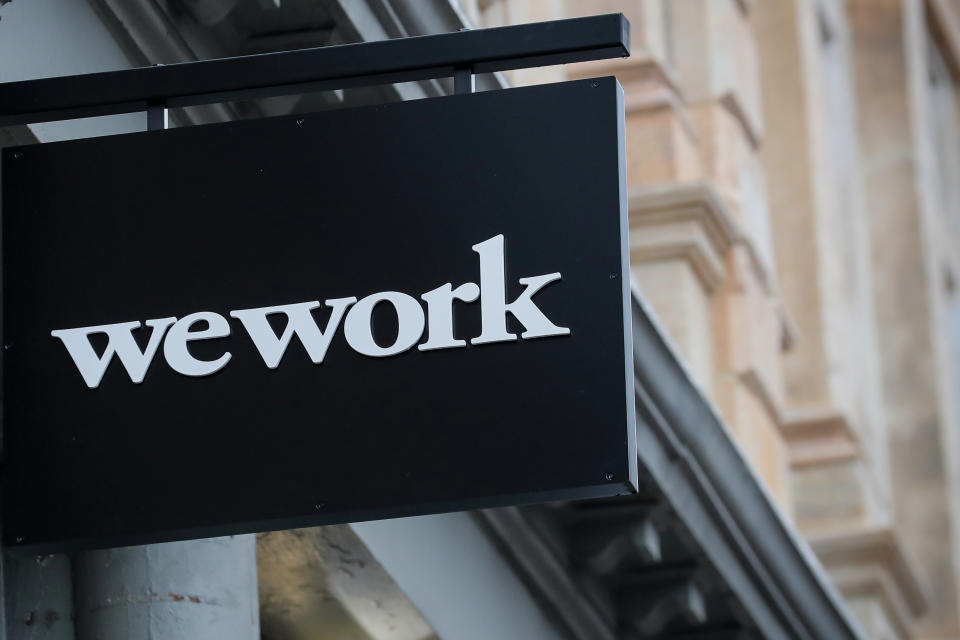WeWork delays multi-billion-dollar IPO after poor reception

Buzzy office rental startup WeWork has delayed plans to list on the stock exchange in the US after struggling to gain enough interest from investors.
WeWork said in a statement on Tuesday that its initial public offering (IPO) would “be completed by the end of the year.” WeWork had planned to start an investor roadshow this week, with a listing likely in the coming weeks.
The decision to postpone the stock market floatation comes after a backlash for WeWork from public market investors.
The company faced “strong push-back by investors on everything from the terms of its planned voting stock, valuation, and governance concerns that threatened to scupper the listing entirely,” Ken Odeluga, a market analyst at City Index, said.
Money managers balked at WeWork’s proposed $47bn (£38bn) valuation. The company, which rents flexible office space, made a loss of $1.9bn on revenues of $1.8bn last year.
WeWork was forced to downgrade the proposed price of shares sold in the IPO and was reportedly considering a public valuation as low as $10bn, according to Reuters.
That would have left many of WeWork’s existing investors facing steep losses in the stock market flotation. The Financial Times reported that SoftBank, WeWork’s biggest investor, had recently urged the company to put off its IPO to avoid the chastening write down.

Potential investors also balked at other aspects of WeWork’s proposed flotation, such as a share structure that gave founder and CEO Adam Neumann complete control even after his death and the fact that WeWork paid Neumann $5.9m for the rights to the name “we”.
“We want to thank all of our employees, members and partners for their ongoing commitment,” WeWork said in the statement on Tuesday.
WeWork was founded by Israeli-born Neumann and Miguel McKelvey in 2010. The company initially had the idea to try and replicate the office perks of a Google or Facebook for smaller companies who needed flexible office space.
WeWork has since grown into one of the biggest office rental companies in the world, with over 528 locations in 29 countries. It now caters to businesses of all sizes and is the biggest office renter in London and New York. It is known for its colourful office interiors and free beer taps provided at each location.
In recent years, WeWork has sought to position itself more of a lifestyle business rather than just a loss-making office provider. It rebranded as The We Company and launched side-businesses in education, housing, and fitness.
Critics say the loss-making company is being propped up by cheap venture capital funding and does not have a sustainable business model. WeWork rents space in buildings on long leases and then sub-lets them to businesses on shorter leases, leaving the company vulnerable to economic downturns or falling rents.
Scott Galloway, a former entrepreneur and professor of marketing at NYU Stern, said in a recently widely shared blog that the $47bn valuation was “insane” and WeWork would “dissipate at the first whiff of a recession.”

 Yahoo Finance
Yahoo Finance 